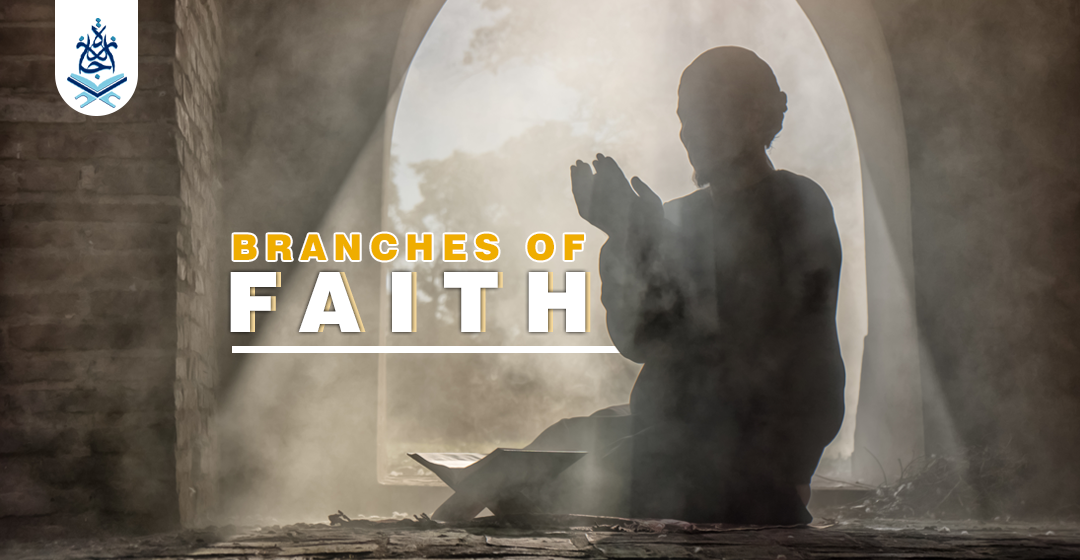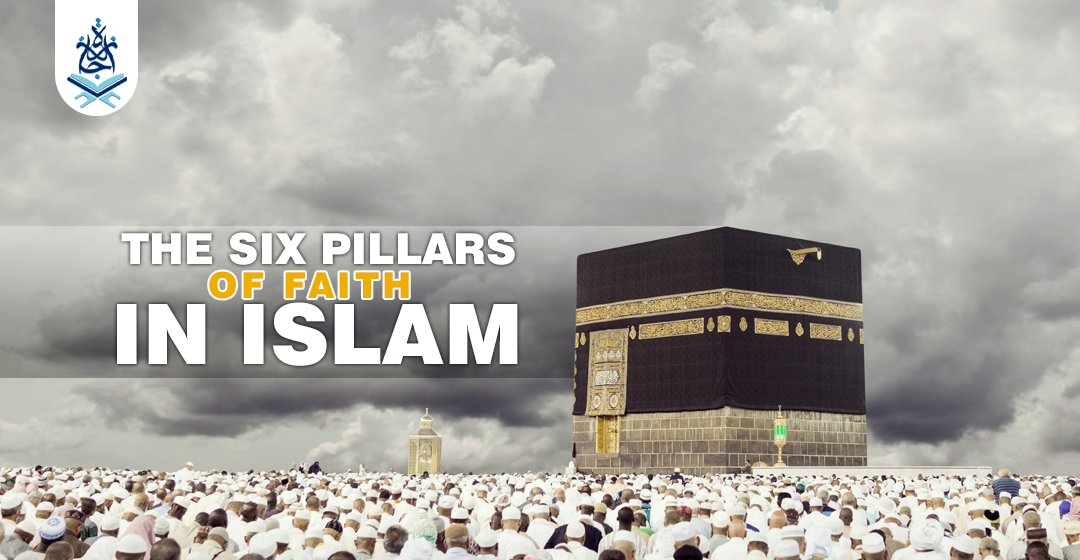The Significance of AlMuharam: Understanding the First Month of the Islamic Calendar

AlMuharam, the first month of the Islamic calendar, holds a place of profound significance in the hearts of Muslims worldwide. As a sacred month, it heralds the Islamic New Year and is marked by deep spiritual reflection, historical remembrance, and cultural practices that underscore the unity and faith of the Muslim community. Understanding AlMuharam is essential for appreciating its religious importance and the values it promotes. This article delves into the rich tapestry of traditions, historical events, and spiritual meanings associated with AlMuharam.
Table of Contents

| Headings | Sub-Headings |
|---|---|
| Introduction | |
| The Islamic Calendar: An Overview | Structure and Months |
| The Lunar Cycle | |
| The Significance of AlMuharam | Historical Background |
| Religious Importance | |
| AlMuharam and the Hijri New Year | Celebrating the Islamic New Year |
| Cultural Practices | |
| Ashura: The Tenth Day of AlMuharam | Historical Events on Ashura |
| Observances and Rituals | |
| Fasting in AlMuharam | The Sunnah of Fasting |
| Spiritual Benefits | |
| The Martyrdom of Husayn ibn Ali | Historical Context |
| Impact on Muslim Community | |
| AlMuharam in Different Cultures | Regional Practices |
| Variations in Observance | |
| AlMuharam and Modern-Day Practices | Contemporary Significance |
| Media and Communication | |
| Educational Initiatives in AlMuharam | Schools and Community Programs |
| Religious Teachings | |
| Challenges and Controversies | Misunderstandings and Myths |
| Sectarian Perspectives | |
| Prominent Scholars and AlMuharam | Influential Figures |
| Scholarly Works | |
| AlMuharam in Literature and Arts | Poetry and Prose |
| Visual Arts | |
| Future Perspectives on AlMuharam | Evolving Traditions |
| Interfaith Dialogue | |
| FAQs | |
| Conclusion |
The Islamic Calendar: An Overview
The Islamic calendar, also known as the Hijri calendar, is a lunar calendar consisting of 12 months in a year of 354 or 355 days. Unlike the Gregorian calendar, which is solar-based, the Islamic calendar is based on the phases of the moon. This section provides an overview of the structure and months of the Islamic calendar and explains the lunar cycle.
Structure and Months
The Islamic calendar begins with AlMuharam, followed by Safar, Rabi' al-Awwal, Rabi' al-Thani, Jumada al-Awwal, Jumada al-Thani, Rajab, Sha'ban, Ramadan, Shawwal, Dhul-Qi'dah, and Dhul-Hijjah. Each month has its unique significance and associated practices, with Ramadan and Dhul-Hijjah being particularly noteworthy due to the fasting month and the Hajj pilgrimage, respectively.
The Lunar Cycle
The Islamic months start with the sighting of the new moon. Since a lunar year is approximately 11 days shorter than a solar year, Islamic months rotate throughout the seasons. This cyclical nature affects the observance of Islamic rituals, which are not fixed to specific seasons but vary each year.
The Significance of AlMuharam

AlMuharam is one of the four sacred months in Islam, along with Rajab, Dhul-Qi'dah, and Dhul-Hijjah. This section delves into the historical background and religious importance of AlMuharam, highlighting why it is revered by Muslims around the world.
Historical Background
AlMuharam holds a significant place in Islamic history. It marks the beginning of the Hijri calendar, instituted after the migration (Hijrah) of the Prophet Muhammad (PBUH) and his followers from Mecca to Medina. This migration was a pivotal event that led to the establishment of the first Muslim community.
Religious Importance
The sacredness of AlMuharam is underscored by its prohibition of warfare. The Prophet Muhammad (PBUH) emphasized that AlMuharam is a month of peace and piety, encouraging Muslims to engage in increased worship and reflection. This month also includes the day of Ashura, which is of particular significance.
AlMuharam and the Hijri New Year
The start of AlMuharam also marks the Islamic New Year. Unlike the festive celebrations of the Gregorian New Year, the Islamic New Year is a time for solemn reflection and spiritual renewal.
Celebrating the Islamic New Year
Muslims commemorate the Islamic New Year through prayers, reading the Quran, and reflecting on the lessons of the Hijrah. It is a time to assess one's faith and make resolutions to improve one's spiritual life.
Cultural Practices
Different cultures have unique ways of marking the New Year. Some communities may hold special gatherings, deliver sermons, or engage in charitable activities. These practices, while varied, share the common goal of fostering community spirit and religious devotion.
Ashura: The Tenth Day of AlMuharam
Ashura, the tenth day of AlMuharam, is one of the most significant days in the Islamic calendar. It is observed for various reasons across different Muslim traditions.
Historical Events on Ashura
For Sunni Muslims, Ashura commemorates the day when Prophet Musa (Moses) and the Israelites were saved from Pharaoh by the parting of the Red Sea. For Shia Muslims, Ashura marks the martyrdom of Husayn ibn Ali, the grandson of Prophet Muhammad (PBUH), at the Battle of Karbala.
Observances and Rituals
Observances of Ashura include fasting, communal prayers, and recounting the historical events associated with the day. For Shia Muslims, Ashura is a day of mourning, marked by processions, recitations, and other rituals that honor the sacrifice of Husayn ibn Ali.
Fasting in AlMuharam
Fasting during AlMuharam, particularly on Ashura, is a well-established Sunnah. This practice offers numerous spiritual benefits and is highly recommended by Islamic teachings.
The Sunnah of Fasting
The Prophet Muhammad (PBUH) encouraged fasting on the day of Ashura, stating that it expiates the sins of the past year. Many Muslims also choose to fast on the 9th and 10th or the 10th and 11th of AlMuharam to distinguish their practice from that of the Jews, who also fast on Ashura.
Spiritual Benefits
Fasting in AlMuharam is seen as a means of drawing closer to Allah, purifying the soul, and reflecting on one's actions. It is an opportunity for increased prayer, charity, and seeking forgiveness.
The Martyrdom of Husayn ibn Ali
The martyrdom of Husayn ibn Ali on the 10th of AlMuharam is a defining event in Islamic history, particularly for Shia Muslims. This section explores the historical context and the impact of this event on the Muslim community.
Historical Context
The Battle of Karbala, which took place in 680 CE, saw Husayn ibn Ali and his small band of followers martyred by the forces of Yazid I. This tragic event is remembered for Husayn's stand against tyranny and his unwavering commitment to justice.
Impact on Muslim Community
The martyrdom of Husayn is a source of inspiration for Muslims, symbolizing the fight against oppression and the importance of upholding truth and justice. It has a profound impact on Shia religious practices and community identity.
AlMuharam in Different Cultures

The observance of AlMuharam varies across different cultures and regions. This section examines the diverse practices associated with this sacred month.
Regional Practices
In South Asia, processions and reenactments of the Battle of Karbala are common. In the Middle East, sermons and gatherings to remember the events of Ashura are prevalent. Each culture adds its unique flavor to the observance of AlMuharam.
Variations in Observance
While the core principles of AlMuharam remain consistent, the specific practices can differ. Some communities may focus more on fasting and prayer, while others emphasize public commemorations and educational programs.
AlMuharam and Modern-Day Practices
In the modern era, the observance of AlMuharam has evolved, influenced by contemporary societal changes and advancements in communication.
Contemporary Significance
Today, AlMuharam remains a vital part of Muslim religious life, serving as a reminder of historical events and their relevance to contemporary issues. The themes of justice, sacrifice, and devotion are timeless and continue to resonate.
Media and Communication
Social media and online platforms have transformed how Muslims observe and share the significance of AlMuharam. Educational content, live streams of events, and virtual gatherings have become commonplace, enhancing the reach and impact of AlMuharam observances.
Educational Initiatives in AlMuharam

Educational programs play a crucial role in deepening the understanding of AlMuharam among Muslims, especially the younger generation.
Schools and Community Programs
Many Islamic schools and community centers organize special programs during AlMuharam. These may include lectures, workshops, and storytelling sessions that focus on the historical and spiritual significance of the month.
Religious Teachings
Islamic scholars and educators use AlMuharam as an opportunity to teach important lessons about faith, history, and ethics. These teachings help to instill a sense of identity and purpose in the Muslim community.
Challenges and Controversies
Despite its significance, AlMuharam is not without its challenges and controversies. This section addresses common misunderstandings and the different perspectives within the Muslim community.
Misunderstandings and Myths
Misinterpretations of the rituals and significance of AlMuharam can lead to confusion and misinformation. It is essential to address these myths and provide accurate information to foster a better understanding.
Sectarian Perspectives
AlMuharam observances can sometimes highlight sectarian differences, particularly between Sunni and Shia Muslims. While the core values remain the same, the ways in which they are expressed can differ, leading to debates and discussions within the community.
Prominent Scholars and AlMuharam
The insights and contributions of prominent Islamic scholars have greatly enriched the understanding of AlMuharam.
Influential Figures
Scholars such as Imam Al-Ghazali, Ibn Taymiyyah, and contemporary figures like Ayatollah Sistani have written extensively on the significance of AlMuharam, providing valuable perspectives and guidance for Muslims.
Scholarly Works
Numerous scholarly works explore the themes of AlMuharam, offering in-depth analysis and interpretation of its historical and spiritual dimensions. These works are essential resources for anyone seeking a deeper understanding of the month.
AlMuharam in Literature and Arts
AlMuharam has inspired a wealth of literature and artistic expression throughout Islamic history.
Poetry and Prose
Poets and writers have long been moved by the events of AlMuharam, producing works that capture its emotional and spiritual depth. From classical poetry to modern prose, the legacy of AlMuharam continues to inspire.
Visual Arts
Artists have depicted scenes from AlMuharam in various forms, including paintings, calligraphy, and digital art. These works serve as powerful reminders of the month’s significance and the values it represents.
Future Perspectives on AlMuharam
As the world continues to change, the observance and significance of AlMuharam will inevitably evolve.
Evolving Traditions
New generations of Muslims are finding innovative ways to observe AlMuharam, blending traditional practices with contemporary approaches. This evolution ensures that the essence of the month remains relevant and meaningful.
Interfaith Dialogue
AlMuharam also provides opportunities for interfaith dialogue and understanding. By sharing the values and stories associated with the month, Muslims can foster greater respect and empathy among different religious communities.
FAQs
What is the significance of AlMuharam in Islam?
AlMuharam is a sacred month in Islam, marking the start of the Islamic New Year and the commemoration of significant historical events, including the migration of the Prophet Muhammad (PBUH) and the martyrdom of Husayn ibn Ali.
Why do Muslims fast during AlMuharam?
Muslims fast during AlMuharam, particularly on the day of Ashura, to seek spiritual benefits, emulate the practices of the Prophet Muhammad (PBUH), and commemorate historical events.
What is Ashura, and why is it important?
Ashura, the tenth day of AlMuharam, is significant for commemorating the rescue of Prophet Musa (Moses) and the martyrdom of Husayn ibn Ali. It is observed through fasting, prayers, and various rituals.
How do different cultures observe AlMuharam?
Different cultures observe AlMuharam through unique practices such as processions, communal prayers, and educational programs. These practices reflect regional traditions while maintaining the core principles of the month.
What challenges are associated with the observance of AlMuharam?
Challenges include misunderstandings, sectarian differences, and the need for accurate information. Addressing these issues is essential for fostering a cohesive and informed Muslim community.
How has modern technology influenced the observance of AlMuharam?
Modern technology, particularly social media and online platforms, has enhanced the observance of AlMuharam by facilitating virtual gatherings, educational content, and broader communication.
Conclusion
AlMuharam, the first month of the Islamic calendar, is a period of profound significance and reflection for Muslims worldwide. Its observance encompasses a rich tapestry of historical events, spiritual practices, and cultural traditions. From the commemoration of Ashura to the start of the Islamic New Year, AlMuharam offers a time for renewal, unity, and deepening one's faith. By understanding and appreciating the diverse ways in which AlMuharam is observed, we can gain a greater appreciation for its enduring relevance and the values it promotes within the Muslim community.
Related articles
Branches of Faith in Islam
Ihsan in Islam
The Six Pillars of Faith in Islam
Our Story
Login
Don't Have Account ?
Register
Already Have Account
Maximize Your Learning: Book a Free Assessment
Register
Already Have Account Login



